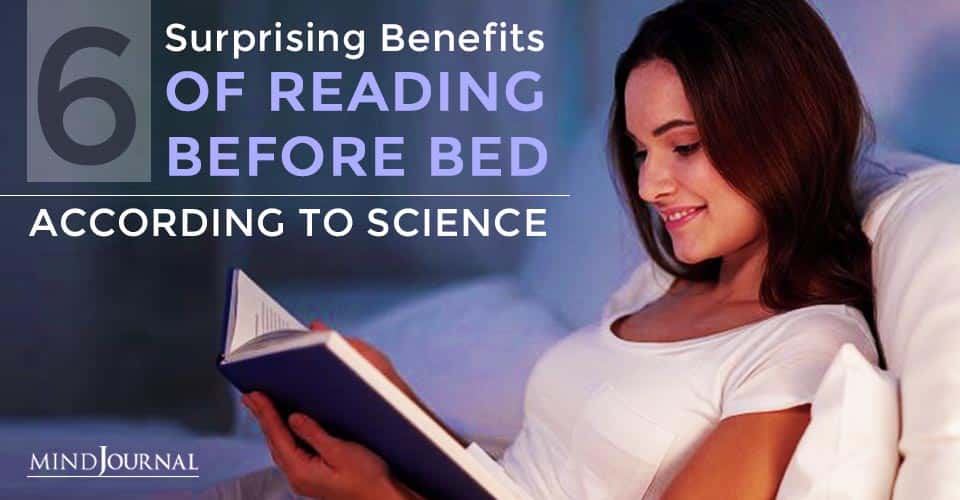Do you have a habit of reading before bed?
We’re all commitment-phobes. We scan, we skim, we browse, but rarely do we read.
Our eyes ping-pong back and forth from Facebook posts to open chat boxes, unclicked emails to GIFs of dancing cats, scanning for keywords but barely digesting what we see. The average time spent on an online article is 15 seconds. In 2014, the Pew Research Center revealed that one-quarter of American adults hadn’t read a single book in the previous year.
And that’s a shame because those who read consistently exhibit significantly greater memory and mental abilities at all stages in life. They’re also better public speakers, thinkers and, according to some studies, better people in general.
Reading a book before you go to bed could help combat insomnia, too: A 2009 study from researchers at the University of Sussex showed that six minutes of reading reduces stress by 68 percent (more relaxing than either music or a cup of tea), thus clearing the mind and readying the body for sleep.
The reasoning, as per psychologist and study author Dr. David Lewis is that a book is “more than merely a distraction, but an active engaging of the imagination,” one that “causes you to enter an altered state of consciousness.”
It doesn’t matter if your book of choice is by James Patterson or James Joyce, fiction or fact, so long as you find it fully absorbing. Because when the mind is engaged in a world constructed by words, tension evaporates and the body relaxes, paving the way for sleep.
Here are some of the health benefits you might enjoy if you read a book right before you catch some zzz.
1. Reading improves cognitive function
Avid readers tend to perform better on tests of cognitive functioning than those who don’t regularly read. In fact, research published out of Northern Illinois University found that readers test higher in vocabulary and generalized knowledge than non-readers, so a quick read at bedtime can actually make you smarter.
Related: How Cognitive Distortions Harm Us
2. It can mitigate mild mental health concerns
Feeling depressed or anxious? You’re not alone. Anxiety and depression are the most commonly reported mental health concerns in the United States. While a book is never a fail-safe treatment for a mental health issue, general practitioners in Britain have begun prescribing book reading to patients who suffer from mild to moderate depression and anxiety, and many of these patients report an alleviation of their symptoms as a result.
Related: 4 Tips For Better Mental Health Through Nutrition
3. A bedtime reading ritual can enhance your sleep
According to the National Sleep Foundation, a relaxing reading ritual can prepare your body for sleep and help your mind separate your sleep time from the stresses of daily living. A winding-down ritual can help people fall asleep faster and enjoy a higher quality of sleep throughout the night.
Related: 20 Tips For A Better Sleep That Don’t Require A Prescription
4. Reading can stave off Alzheimer’s
Although Alzheimer’s is not a preventable disease, certain habits can help protect the brain’s functioning and are associated with a lower risk of Alzheimer’s. Any activity that stimulates the brain is protective against Alzheimer’s, so the National Institute on Aging suggests that adults read regularly for fun and to keep mental functioning strong.
5. It reduces cortisol levels
Cortisol isn’t always a bad thing. It helps to rouse people from sleep in the morning, and also helps them address and overcome acute stress. Unfortunately, cortisol can begin to wreak havoc on the body, when it remains at high levels, as the result of chronic stress. It can lead to weight gain, gastrointestinal problems, depression, and chronic fatigue. Reading before bed can help to lower the body’s cortisol levels by reducing stress. The result? A body with lower levels of cortisol is more likely to sleep soundly and thus cope with the following day’s stressors more calmly.
Related: Herbs That Can Help You Combat Stress
6. Reading may improve your empathy
Emotional intelligence is key to developing healthy relationships, but many people forgo developing their empathetic responses.
Related: What is Your Level of Empathy?
Research published in the journal Science, however, indicates that the development of empathy is easier than many might think. If you read literary fiction before bed, you’re more likely to understand others’ emotions and mental processes, which can improve the quality of your relationships.
What book do you plan to pick up tonight? Let me know in comments!










Leave a Reply